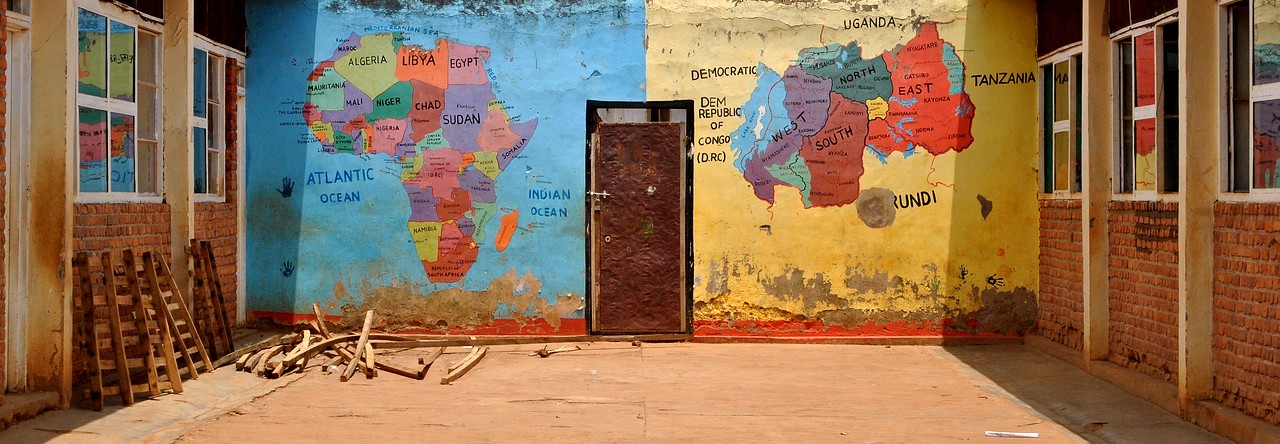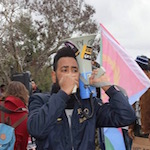 — By Sam from Uganda
— By Sam from Uganda
Samuel Nakwagala was 25 years old when Uganda attained her independence from Great Britain in 1962. A year earlier, he had joined the Uganda Post and Telecommunications Company as a Postmaster in Busembatia Town in eastern Uganda.
With a lucrative job and happy family, an independent Uganda meant limitless horizons for the Nakwagalas since they would now be directly in charge of their destiny. The 1962 elections were held and the Uganda People’s Congress Party won. Nakwagala’s highschool contemporary Milton Obote was appointed as the executive Prime Minister while Edward Mutesa was appointed as the ceremonial Head of State.
The Nakwagalas were now in full charge of their country. Uganda’s economy was booming with exports of copper, coffee, cotton and hydroelectricity. Uganda’s agricultural sector was feeding the East and Central African region and Uganda’s GDP growth rate was almost the same as that of India and South Korea. A constitution was drafted which stipulated that there would be presidential elections every five years. Ugandans were happy with the federal system of governance because it granted them more control of their affairs and brought services closer to them.
Four years after independence, Milton Obote fell out with Edward Mutesa. Soldiers loyal to Obote attacked Mutesa’s palace and forced him into exile. This marked the beginning of bloodshed in Uganda. A state of emergency was declared; Obote abrogated the 1962 constitution and declared himself president. He went ahead and abolished kingdoms and declared Uganda as a one party state. Corruption, nepotism and assassinations became the order of the day as Obote attempted to do all he could to consolidate his grip on power.
Obote was overthrown by Idi Amin Dada in 1971 and Ugandans welcomed the coup with open hearts. “We were strong believers in kingdoms that Obote had abolished and we had hopes in Amin restoring them. Obote had lost track and denied us the right to elect leaders of our choice but with Amin, we knew we were going to restore the rule of law in Uganda,” says Nakwagala.
Idi Amin started off with economic reforms of Africanizing the Ugandan economy. He expelled immigrants from Uganda in order to create jobs for Ugandans. “We were happy when Amin chased away the immigrants,” adds Nakwagala.
Idi Amin’s honeymoon did not last long. He abolished the constitution, declared himself life president and started ruling by decree. Any opposition to Amin meant death and many Ugandans fled to exile. The economy collapsed because the Ugandans who replaced the expelled immigrants did not have the skills to manage it. Ugandans who had fled to exile mobilized and waged war against Idi Amin with support from the Tanzanian Government and in 1979, Uganda was liberated from Amin’s life presidency.
Ugandans organized the December 1980 elections which were won by former President Milton Obote. One of the contestants, Yoweri Museveni, rejected the outcome and waged war against Obote in February 1981. This war had devastating effects on the economy: lives were lost and out of frustration, Milton Obote was overthrown by his own army in July 1985 and General Tito Okello became the President of Uganda.
Nakwagala’s home was ransacked, his property was destroyed and he was tortured with his children as a punishment for supporting the dethroned Government. General Tito Okello’s reign was short lived as he was overthrown by the guerrilla rebels of Yoweri Museveni in January 1986. Nakwagala chose not to take revenge when his tormentors were defeated by Yoweri Museveni. He instead started a reconciliation initiative in Nasuti Village to promote tolerance in communities in 1986. Community dialogues would be held in his compound, and he would preach peace and sensitize his village mates about the political mistakes of Uganda.
Hope for any peaceful transition of power is a dream that is far from near for Samuel Nakwagala and all Ugandans. General Yoweri Museveni has been President since 1986. He amended the constitution in 2005 to remove term limits and he went ahead to contest for his third term in 2006, fourth term in 2011 and fifth term in 2016. Museveni is now 73 years and ineligible to contest for his sixth term in 2021 due to a constitutional age limit of 75. However, he has tabled a bill seeking to remove the age limit and with his ruling party commanding 80% of the Parliament, that bill will be passed and he will be eligible for his sixth term. With the life presidency syndrome in Uganda, only peace and tolerance as preached by Samuel Nakwagala can enhance harmony after regime change.



